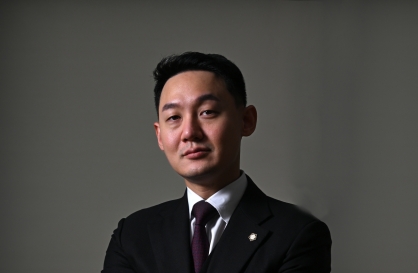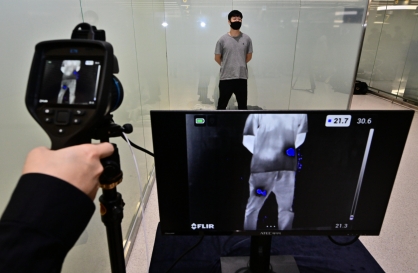Most Popular
Out of the Shadows
[Out of the Shadows] Drug addiction is illness, not moral failing, experts say
Community involvement, more rehab centers needed for addiction recovery
By Park Jun-heePublished : Nov. 19, 2024 - 14:21

Drug addiction is a thorny public health issue in South Korea that should be seen as an illness rather than a moral failing, according to experts, calling for a more supportive environment that helps those rebuilding their lives from substance use disorder.
Referring to drug addiction as a "chronic disease," Kwak Young-sook, the president of the National Center for Mental Health, stressed that drug-related issues are a growing public health challenge that affects the entire community.
"Drug addiction requires long-term care and management because it's not a personal failing. Providing appropriate treatment and rehabilitation for people of all ages is essential for effectively addressing addiction problems on a societal level," she said in her opening remarks at a recent forum on drug addiction.
The sixth edition of the NCMH's symposium on the treatment, rehabilitation and prevention of drug addiction was held on Friday afternoon at the institution's headquarters, co-organized by the Korean Academy of Psychiatry and the Law. The event brought together renowned experts and government officials to discuss how society should tackle the menace of drug addiction to build a healthier community.
"In that vein, the NCMH has been paying greater attention to drug addiction, and we held a drug-related forum for teenagers in December last year. This year the center was also designated as the regional treatment and protection institution for drug addiction by the Health Ministry," the president noted.
Cho Sung-nam, who heads the KAPL, concurred that society plays a big part in preventing drug use and helping addicts recover, adding that the public should understand drug addiction as a disease.
"Just like any other illness, no one wants to suffer from drug addiction, but they can fall into it anytime. It's like an infectious disease that can affect more people over time."
"However, people often question why public resources should be spent on individuals battling drug addiction, thinking it's a personal problem. But they should know that this is meant to protect people from drugs and create a safer society," Cho underscored.
"Now is the 'golden time' for Korea to take action against drugs before we become like California in the US, for example, where residents are moving to other cities due to soaring drug use," Cho stressed.
Doctor-turned-lawmaker Rep. Han Zee-a of the ruling People Power Party called for a shift in public perception and societal attitudes toward drug addiction.
"Our society tends to view drug addiction as a crime committed by criminals, not a disease that needs treatment. But this must change. Addiction has become a disease that needs treatment and an illness that can affect our families, friends and neighbors," Rep. Han said in a pre-recorded video, vowing efforts to solve drug addiction issues as a member of the National Assembly's Health and Welfare Committee.
The public, however, appears reluctant to change its attitude toward drugs. Eight in 10 Koreans hold negative perceptions about drug users, believing they lack moral values and lead promiscuous lives, according to a survey on drugs conducted by Research Korea Co. in March last year. The poll was conducted on 1,000 people aged above 18.
Speaking on the prosecution's role in treating drug addicts, Yoon Shin-myung, a researcher at the Supreme Prosecutors' Office's Narcotics and Organized Crimes Department, said the government needs to provide sufficient resources and infrastructure.
"Drug crimes are currently soaring in Korea, and it's nearly impossible to ban the influx of drugs into the country, so the prosecution has recognized that tackling drug addiction requires adequate treatment and rehabilitation rather than repeated punishment for offenders who relapse," said Yoon, a prosecutor who has been working in narcotics for a decade.
A record high of 27,611 people were apprehended for drug-related offenses last year, surpassing the 20,000 mark for the first time, with a particular increase among young people, according to the annual drug crime report compiled by the Supreme Prosecutors' Office in June this year. In 2022, the corresponding figure was 18,395.
When it comes to sentencing, Article 61 of the Narcotics Control Act stipulates that a person who uses psychotropic substances or cannabis can sentenced to up to five years in prison or a fine of up to 50 million won ($35,909).
"However, the prosecution is primarily focused on its role as an investigative body and faces challenges in assessing the level of one's drug addiction during the investigation process. Also, the prosecution does not have access to specific programs or resources to provide treatment or rehabilitation for addicts," Yoon pointed out.
Highlighting the need for more rehab programs that could provide a path to healing for addicts, Kim Young-hwan, who heads the Korea Addicts Right Center, pointed out that an obstacle to creating drug treatment centers is the opposition they face from nearby residents.
"There are not many drug rehab centers in Korea, considering the number of drug offenders we have. But don't we have to help drug addicts wanting to return to society? If we abandon them, who will bring them back?" noted Kim, a former addict who used drugs for about two decades.
"The most urgent matter to address right now is the lack of public awareness and understanding about drug addiction rehab facilities. These are not places that harm society, but rather are places that give addicts the opportunity to rebuild their lives and become members of society."
The Korea Herald is running a series of feature stories and interviews on the evolution and rise of drug crimes, insufficient support systems and young addicts' stories in South Korea. This is the 13th installment. -- Ed.





![[Herald Interview] How Gopizza got big in India](http://res.heraldm.com/phpwas/restmb_idxmake.php?idx=644&simg=/content/image/2024/11/20/20241120050057_0.jpg&u=20241120164556)


![[KH Explains] Dissecting Hyundai Motor's lobbying in US](http://res.heraldm.com/phpwas/restmb_idxmake.php?idx=644&simg=/content/image/2024/11/20/20241120050034_0.jpg&u=)
![[Kim Seong-kon] Farewell to the vanishing John Wayne era](http://res.heraldm.com/phpwas/restmb_idxmake.php?idx=644&simg=/content/image/2024/11/19/20241119050096_0.jpg&u=)
![[Graphic News] 70% of S. Koreans believe couples can live together without tying the knot: survey](http://res.heraldm.com/phpwas/restmb_idxmake.php?idx=644&simg=/content/image/2024/11/19/20241119050098_0.gif&u=)












![[Today’s K-pop] Blackpink’s Jennie, Lisa invited to Coachella as solo acts](http://res.heraldm.com/phpwas/restmb_idxmake.php?idx=642&simg=/content/image/2024/11/21/20241121050099_0.jpg&u=20241121172748)